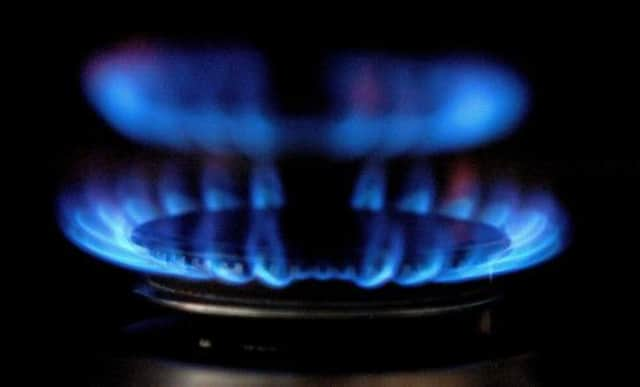Leaders: Results must be seen in cold light of day


Yesterday brought news of falling profits following a notable exodus of customers in the past year. Opposition proposals for a prize freeze and talk from Energy Secretary Ed Davey of a break-up of this energy giant remain on the table. Centrica bosses have warned that this will damage badly needed investment and yesterday its chairman declared that political intervention would mean the prospect of “the lights going out in Britain looming much larger”.
For millions of harassed households this high-decibel rooftop exchange of threat and counter-threat offers little reassurance. As it is, the lack of transparency in Centrica’s accounts makes it difficult to understand how a company can be said to be reflecting the interests of customers when it sets the price at which it supplies its energy to its retail operations.
Advertisement
Hide AdAdvertisement
Hide AdThe fall in profits at British Gas is not sufficiently substantial to stay the hand of the Energy Secretary or Labour. Adjusted operating profit for the full year is down just 6 per cent at £571 million. Parent company Centrica also posted a dip in profits, down from £2.74 billion to £2.7bn.
Arguably of greater note is the 362,000 fall in customer numbers over the period. A further 100,000 have deserted so far this year, in the wake of an average annual increase of 9.2 per cent in household energy bills.
Few doubt the international environment is anything other than tough for the energy industry, or that the rising costs of finding and exploiting new reserves in the North Sea present a big challenge. However, looking at the continuing high level of profit – and an 11.2 per cent supply margin that is the second highest in the sector – it is hard to sustain a credible argument that its investment programme is under threat. This looks an exercise in scaremongering of the type indulged in by the publicly owned British Gas of old. The loss of customers to rivals can also be seen as a failure by the company to meet and match the pricing offers of its competitors: after all, one of the benefits of being released from state control was the flexibility gained to respond quickly to market pressures and to improve its competitive offer.
Equally, it is hard to give much credence to the calls from the Energy Secretary for the competition authorities to investigate the profit margins of the major suppliers, given that a review of the market is already being carried out by the Office of Fair Trading, regulator Ofgem and the Competition and Markets Authority.
If scary talk of the prospect of “the lights going out” is overblown, so, too is the political rhetoric of a Centrica break-up until the enquiries already in train have been completed and the full results published.
Welcome moves for helicopters
Four helicopter accidents and incidents in the North Sea over the past five years have made it imperative to investigate the circumstances and undertake safety enhancement measures.
These are the essential preconditions for any restoration of confidence in the workhorses that carry North Sea oil workers across treacherous and inhospitable seas. The wide-ranging safety review and the immediate introduction of safety measures by the Civil Aviation Authority takes firm and encouraging steps down this road. These include a ban on helicopter flights in severe sea conditions and seating arrangements for oil workers next to an emergency window exit to make escape easier. These new restrictions will stay in place until extra flotation devices are fitted and better emergency breathing systems for passengers are available. And there will also be important changes in the way pilots are trained and checked. The CAA will also take on the role of approving each offshore helideck, ensuring they meet strict safety standards. The tragedies that have befallen rig workers were appalling and include the Sumburgh Head disaster off Shetland which claimed the lives of four people and the fatal crash in April 2009 in which a Super Puma plummeted from the sky, killing all 16 on board.
The North Sea has always been a dangerous place. Removing oil and gas from such an inhospitable environment is always going to require people to put their lives at risk and we should all be grateful, but it is incumbent upon us to do what we can to make risk an absolute minimum, and these measures will help to do that.